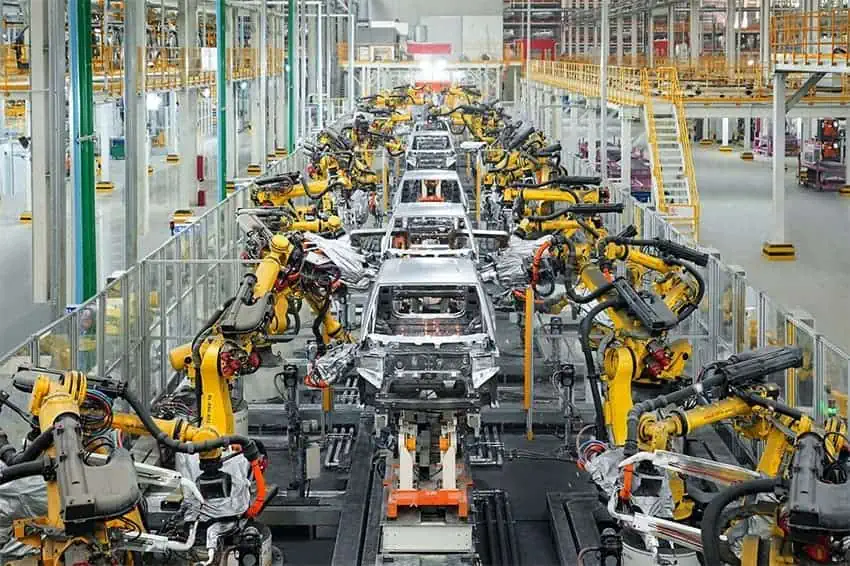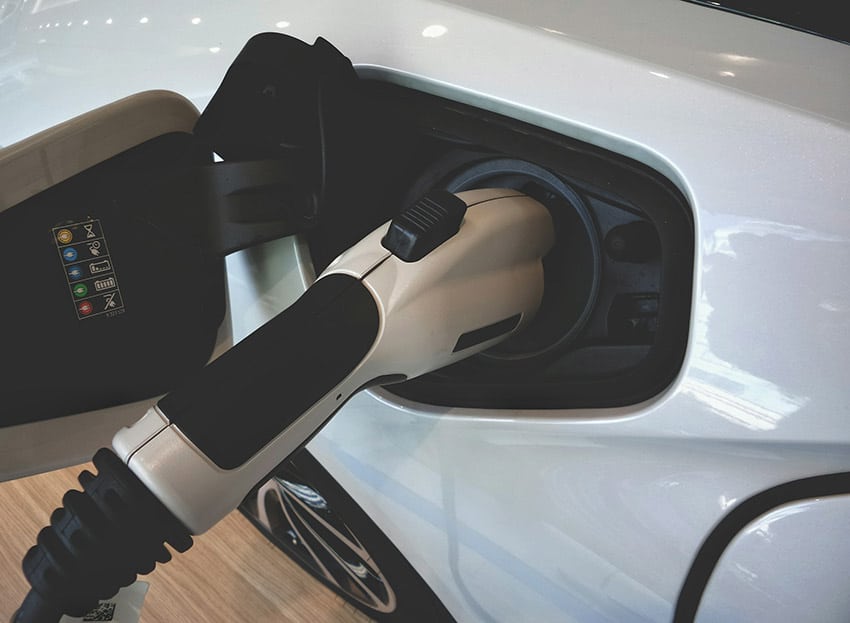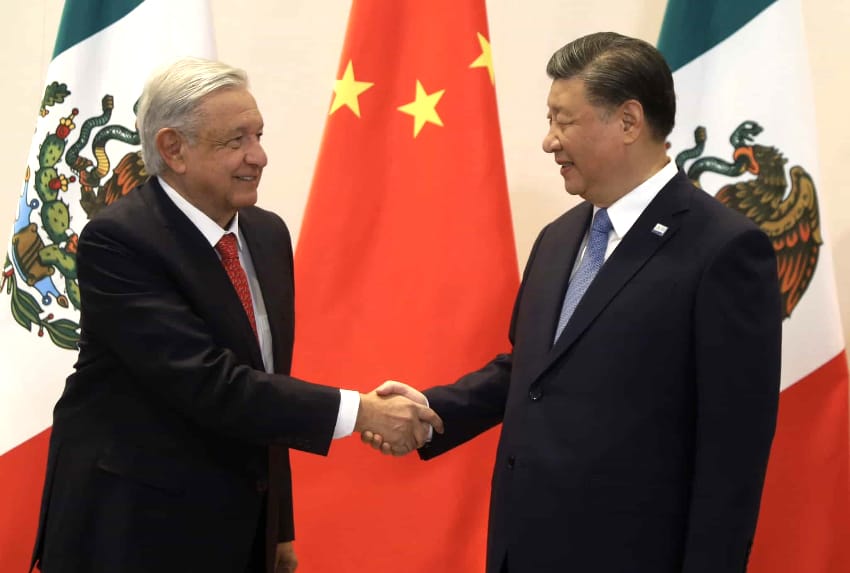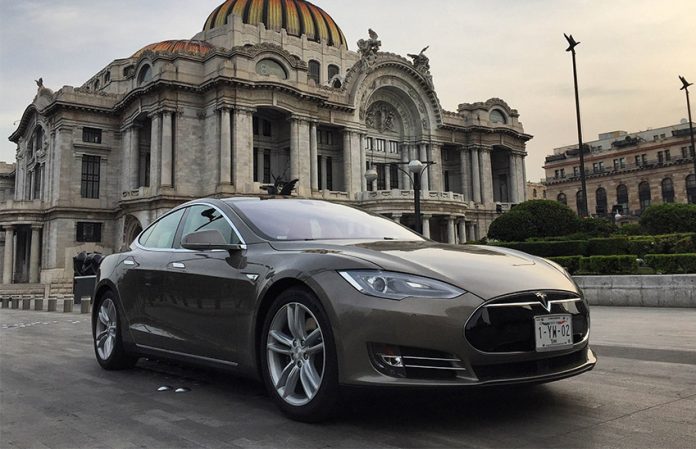Tesla CEO Elon Musk knows it won’t be easy to compete with Chinese automakers, some of which are owned or subsidized by the Chinese government. Buying auto parts from Chinese suppliers is one way he is aiming to keep up.
Citing unnamed “people with knowledge of the situation,” Bloomberg reported Wednesday that Musk has “invited Chinese suppliers to Mexico to replicate the local supply chain at Tesla’s Shanghai plant.”
The news agency also said that “Chinese auto-parts makers are rapidly setting up plants” on the outskirts of Monterrey to supply the Tesla “gigafactory” that is set to be built just west of the Nuevo León capital in the municipality of Santa Catarina.
“They join the ranks of Chinese manufacturers that opened Mexican facilities in response to Trump-era tariffs — and this new surge has set off alarm bells in Washington,” Bloomberg added.
Musk outlined his concern about Tesla’s ability to compete with Chinese carmakers in a post-earnings call with analysts last month.
Chinese automakers are the “most competitive” on the planet and “if there are no trade barriers established” against the export of their vehicles “they will pretty much demolish most other car companies in the world,” he said. “They’re extremely good.”

Tesla already buys Chinese-owned Mexican-made parts for vehicles assembled at its “gigafactory” in Austin, Texas, as do other automakers in the U.S., where imports of such parts increased 15% last year to reach US $1.1 billion, according to Mexican auto-parts industry association INA.
In 2023, 18 of 33 Chinese auto-parts manufacturers in Mexico exported to the U.S., according to INA.
What exactly is the United States worried about and how has it responded to date?
United States officials are concerned about the entry to the U.S. of comparatively cheap Chinese parts and vehicles — including ones made in Mexico — due to the threat they pose to the American automotive industry and its workers.
In a letter to United States Trade Representative Katherine Tai in November, four members of the U.S. House Select Committee on the Chinese Communist Party said they were “concerned by how the People’s Republic of China (PRC) is preparing to flood the United States and global markets with automobiles, particularly electric vehicles (EV), propped up by massive subsidies and long-standing localization and other discriminatory policies employed by the PRC.”
“We request that the Office of the United States Trade Representative (USTR) consider whether to launch a new … investigation into these practices and the harm they pose to the American automotive industry and American workers and what actions should be taken to counter the PRC’s industrial strategy to dominate the global automobile market,” they wrote.
The lawmakers also requested that the U.S. government be ready to “address the coming wave of PRC vehicles that will be exported from our other trading partners, such as Mexico, as PRC automakers look to strategically establish operations outside of the PRC to take advantage of preferential access to the U.S. market through our free trade agreements and circumvent any PRC-specific tariffs.”
Among the Chinese automakers looking to open plants in Mexico, according to Bloomberg’s report, are BYD, Chery Automobile Co. and SAIC Motor Corp.’s MG brand. BYD overtook Tesla to become the world’s top electric vehicle (EV) vendor in the last quarter of 2023. BYD Mexico chief Zhou Zou said this week that the company is considering opening a plant in Mexico.
Ambassador Tai responded to the four U.S. lawmakers in a letter in January, saying that the issues they raised were “a priority to the Administration, and we are clear-eyed that China has developed and implemented a plan to target the EV sector for dominance through a wide and evolving range of non-market based policies and practices.”
She said the U.S. government was looking at ways to make existing tariffs “more strategic” and acknowledged that “existing rules of origin” applicable to the automotive sector “have left openings” for Chinese companies operating outside China to benefit from “MFN [most-favored nation] treatment” in the U.S. “or preferential treatment under free trade agreements.”

In December, Mexico and the United States agreed to cooperate on foreign investment screening as a measure to better protect the national security of both countries. That move appeared to be motivated to a large degree by a desire to stop problematic Chinese investment in Mexico. It remains to be seen whether any proposed Chinese investment in Mexico is halted as a result of the bilateral cooperation.
Bloomberg reported that U.S. officials are concerned that “the vast troves of data” collected by electric Chinese “smart cars” could present “hacking or national security threats.”
The news agency reported earlier this month that the U.S. government was considering restricting all imports of electric Chinese “smart cars” no matter where they’re assembled.
This week, Bloomberg said that tax lawyers in the U.S. “have even identified a path through which a Chinese-owned subsidiary based in Mexico could build full EVs that would qualify” for a $7,500 tax credit offered by the U.S. government under the 2022 Inflation Reduction Act.
To qualify, Bloomberg noted, Chinese manufacturers in Mexico would be unable to source battery minerals or components from China. Chinese battery maker Contemporary Amperex Technology Co. Ltd. is considering building a plant in Mexico, the news agency reported. Such a plant could allow Chinese automakers to work with a Chinese battery maker without affecting their vehicles’ ability to qualify for the tax credit.
Chinese automakers’ apparent ability to access the tax credit “is a big fear for both U.S. EV manufacturers and government officials,” Bloomberg said.
In addition to United States officials, a union representing Canadian auto-parts manufacturers and the United Auto Workers in the U.S. have also expressed concern about increasing Chinese investment in Mexico.
Mexico currently appears happy to welcome Chinese investment, although it has apparently canceled the lithium mining concessions held by a Chinese company for a large project in Sonora. Lithium, a key component of the lithium-ion batteries used in EVs, was nationalized in Mexico in 2022.
Despite the increase in Chinese investment, China was not among the top 10 foreign investors in the country last year, according to foreign direct investment data published by the Economy Ministry this week.

What will the US do next?
Kelly Ann Shaw, a former deputy assistant to the U.S. president for international economic affairs and deputy director of the National Economic Council, told Bloomberg that U.S. and Canadian concerns about Chinese investment in Mexico could lead to changes in the USMCA when the next review of the North American free trade pact is undertaken in 2026.
“You could see a situation where, if there is a real problem of Chinese parts coming across the border, whoever is president says, ‘We’re just going to demand more commitment from Mexico to stop that,’” said Shaw, now a partner at the law firm Hogan Lovells.
The Washington Post reported in late January that Donald Trump is “weighing options for a major new economic attack on China if reelected, considering plans that are widely viewed as likely to spark a global trade war.”
“… Privately, Trump has discussed with advisers the possibility of imposing a flat 60 percent tariff on all Chinese imports,” the Post reported.
Trump, or Joe Biden, could seek to rejig the USMCA in a way that eliminates or limits the trade benefits available to Chinese companies operating in Mexico. Amendments could also be made to the Inflation Reduction Act to ensure that EVs made by Chinese companies in Mexico don’t qualify for the $7,500 tax credit.
The Economist said in late 2023 that a growing Chinese presence in Mexico “could backfire if it raises tensions with the United States.”
The British publication also said that if China “is too successful in skirting tariffs it may find its back door” to the United States (i.e. Mexico) “as well as the front entrance slammed shut.”
However, a senior fellow at the Peterson Institute for International Economics in Washington, Mary Lovely, warned that too many protectionist measures on Chinese vehicles could have a negative impact on innovation and make cars too expensive for many consumers.
“If there isn’t Chinese involvement, how do we keep the industry competitive?” she asked while speaking with Bloomberg.
In Mexico, Tesla is planning to make a new “low-cost” EV that will first be manufactured in Austin. Musk said in December that “the revolution in manufacturing that will be represented by that car will blow people’s minds.”
“It’s not like any car production line that anyone’s ever seen. … It’s a level of production technology that is far in advance of any automotive plant on earth. It’s going to be cool,” he said.
Will that technology give Tesla a competitive edge over its Chinese competitors? Will the U.S. tighten restrictions and/or put tariffs on cars and parts produced by Chinese companies in Mexico?
Only time will tell.
With reports from Bloomberg
